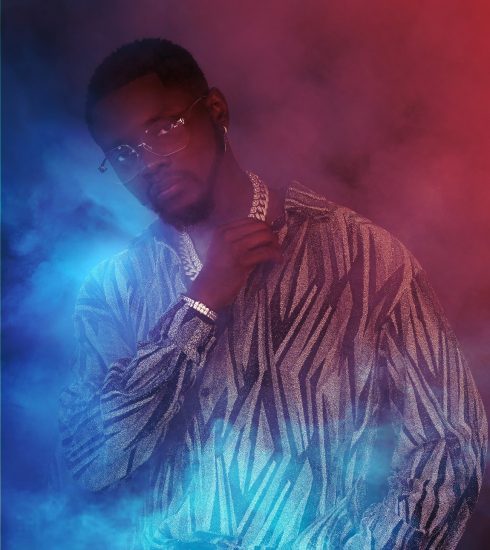Ring The Alarm: Sexual assault is at an all time high in Nigeria. NO, the devil didn’t make them do it!
Since the creation of the first man, there have been different problems that needed fixing at every point in history. The economy had to be fixed, countries had to come to a truce to avoid senseless wars, innovations became a necessity to improve quality of life. All of these were made possible because they were prioritised at some point.
To solve a problem, we must first define it. A large number of Nigerians go about committing sex crimes every day and don’t even know it. For an act that has plagued the human race for so long, there’s little or no education on it, accountability from the perpetrators nor help rendered to the victims; especially in Nigeria.
The umbrella term is Sexual Abuse (or assault) and by definition, it is any sexual act or behaviour carried out on someone without their unequivocal go-ahead. This ranges from inappropriate touching, penetration (vaginal, oral or anal), indecent exposure to talking – to a point where the other party is uncomfortable.
Sexual abuse can be verbal, visual, or anything that forces a person to join in unwanted sexual contact or attention. It can happen to anyone, anywhere and at any time; it has no age, gender, disability, or socioeconomic boundaries. Every victim’s experience is different and unique.
With the most common forms of it being rape, sexual harassment and child molestation, the following descriptions are types of sexual abuse.
Child Sexual Abuse
Child sexual abuse, also called child molestation, is a form of child abuse in which an adult or older adolescent uses a child for sexual stimulation. Forms of child sexual abuse include engaging in sexual activities with a child (whether by asking or pressuring, or by other means), indecent exposure (of the genitals, female nipples, etc.), child grooming, and child sexual exploitation, including using a child to produce child pornography.
Acquaintance/Date Rape
Date or acquaintance rape is a sexual assault committed by a person known to the victim. The assailant could be a friend, a relative, a date, an employer, or a recent acquaintance.
Regardless of the circumstances surrounding the incident (such as drug or alcohol use), rape is a crime of violence that is punishable by law.
Date/Acquaintance rape is one of the most under-reported violent criminal acts because many survivors do not realize that they’ve been sexually assaulted. Anytime a person forces, coerces, or manipulates another person to engage in sexual activity against their will or without their consent, that is sexual assault. Sexual assault is not sex. The perpetrator is motivated by a need to feel powerful by controlling, dominating, or humiliating another person.
Stranger Assault
Stranger sexual assault is usually a one-incident occurrence of sexual assault. It is someone you have never met before, with whom you do not share any experiences or history. When the assault happens, there can be no doubt as to what is happening: that it is sexual assault.
Stranger sexual assault is a sexual act of violence outside of the victim’s normal relationships. Stranger sexual assault almost always involves a certain degree of physical violence.
If you have been a victim of a stranger assault, you must consider reporting to law enforcement. Offenders that attack someone that they do not know are often more violent and tend to be repeat offenders.
Incest
Incest is sexual contact between persons who are so closely related that their marriage is illegal (e.g., parents and children, uncles/aunts and nieces/nephews, etc.). This usually takes the form of an older family member sexually abusing a child or adolescent.
Intimate Partner Sexual Assault
In marital or intimate partner sexual assault, it is an assault that is a physical and sexual violation but also a betrayal of trust. The offender is a person whom you thought you knew intimately, with whom you share a history, a home, and quite often children. The offender is a person whom you have made love to frequently often over many years, with whom you have shared your most intimate secrets and fears, and whom you believe to love you, want the best for you, who would never intentionally hurt you. Marital or intimate partner sexual assault is so destructive as it betrays the fundamental basis of the marital relationship because it questions every understanding you have not only of your partner and your marriage but of yourself. You end up feeling betrayed, humiliated, and above all, very confused. Many men or women who are victims of marital or intimate partner sexual assault have great difficulty in defining it as such. The traditional idea that a man can’t rape his wife or intimate partner and that somehow, in taking our marriage vows we have abdicated any say over our own body and sexuality, basically denies women the right to say “NO,” is still prevalent among married women as much as among men. A wife or partner being sexually assaulted will often question his or her right to refuse intercourse with her husband or partner, and while she or he may realize that legally it constitutes rape, there are many reasons which may prevent him or her from perceiving it in such a light.
Same Gender Assault
Same-gender assault is when a sexual assault occurs and the victim and the perpetrator are of the same gender. This does not necessarily mean that they identify as gay, lesbian, bisexual, or transgender (LGBTQ), however, same-sex sexual assault does occur in the LGBTQ community. Same-gender sexual assault is often referred to as “homosexual rape.” This is not very accurate as many sexual assaults involve non-consensual acts other than “rape,” and because the perpetrators of this form of sexual violence are not always homosexual. Victims of same-gender sexual assaults may find it hard to come forward because of how people would perceive their sexual orientation.
Sexual Harassment/Stalking
Sexual harassment is when someone: touches you or asks you to touch them in private parts even if it is over the clothing; shows you sexual pictures or objects that make you feel uncomfortable; talks about sexual things or tells you dirty jokes; makes you feel uncomfortable at school, work, or at play; doesn’t stop when you ask them to.
Stalking is defined as a course of conduct directed at a specific person that places a reasonable person in fear for her or his safety.
Sexual Exploitation by Professionals
Sexual exploitation by a helping professional includes sexual conduct of any kind between a professional and the person seeking or receiving a service. Helping professionals include doctors, therapists, professors, police officers, lawyers, religious leaders, and any other professional who offers a helping service.
Drug-Facilitated Sexual Assault
Just as it is against the law to slip someone a drug to facilitate a sexual assault, it is also considered sexual assault if the victim or survivor knowingly and voluntarily ingests drugs or alcohol. Performing any sexual act(s) on a person who is unconscious or asleep, too drunk to withhold consent, or unable to communicate is against the law.
The victim usually blacks out and has no memory of the assault or the events surrounding the assault. The drugs that are commonly slipped to the victim or survivors are eliminated quickly from the body, leaving no evidence that the drug was in the victim or survivor’s system, thus making it difficult to prove lack of consent. This factor, along with loss of memory, often works against the investigation of Drug Facilitated Sexual Assaults. Remember alcohol is still the most commonly used drug to facilitate sexual assault.
Indecent Exposure, Peeping and Hidden Cameras
These are all forms of sexual violence. Victims or survivors can experience the same short and long-term effects as victims or survivors of other sexual violence. The offenders of these crimes come from all different backgrounds and environments. The offender may have a long history of incidences of inappropriate behaviour or it may be an isolated incident. Any of these actions are crimes and it is important to report them to local law enforcement.
Child Pornography
Child pornography is defined as material that is either made using children or through the use of modern technology, is made to appear that children are being used. Child pornography does not have to involve obscene behaviour but may include sexually explicit conduct that is suggestive.
Female Genital Mutilation
Female genital mutilation occurs in multiple countries including Nigeria. Experiencing it is painful and traumatic, both short and long-term. Sometimes practised as part of a religion, it is a harmful and oppressive practice. The most common type of Female Genital Mutilation is the removal of the clitoris and the labia minora.
Human Trafficking
Human trafficking is the trade of humans for forced labour, sexual slavery, or commercial sexual exploitation for the trafficker or others. This may encompass providing a spouse in the context of forced marriage, or the extraction of organs or tissues, including surrogacy and ovary removal.
A common pattern has formed with every single form of sexual abuse: the unequivocal go-ahead from the receiving party. This is often referred to as consent. Let’s talk about it.
Consent
Due to the complexity of this term, its legal definitions may vary by location and circumstance, the general concept is always the same: Consent is an ongoing process of discussing boundaries and what one is comfortable with.
Consent is a voluntary, enthusiastic, and clear agreement between two or more participants to engage in specific (sexual) activity.
Sometimes people tend to have a varying definition of consent but there is no room for different views on what consent is. For example, people incapacitated by drugs or alcohol cannot consent.
Age Of Consent
The age of consent is the age at which a person is considered to be legally competent to consent to sexual acts.
Consequently, an adult who engages in sexual activity with a person younger than the age of consent is unable to legally claim that the sexual activity was consensual, and such sexual activity may be considered child sexual abuse or statutory rape.
Sadly, the age of consent doesn’t always protect minors because some countries [especially in Africa] have terribly low ages of consent with Wikipedia records placing that of Nigeria at 11- years-old.
Different factors influence the age of consent so sometimes even within a nation, there may be different ages among various groups.
The factors that influence the age of consent in Nigeria are majorly religion and culture. Both factors play a role as they provide loopholes for the age of consent and often encourage the marriage of children. So how does this translate to the mess we have today? Let’s look at the statistics.
The Numbers…
Nigeria does not have the best track record when it comes to arresting and prosecuting malefactors of sexual crimes. According to the Nigerian Bureau of statistics sexual offences in Nigeria 2017.
They place the number of reported cases of rape and indecent adult at 2,279. The number reported cases of unnatural offences at 1,164 yet there are 0 convictions reported by the police and 1 state out of all 36 states reported no case of indecent assault.
In an interview with BBC, a human rights activist who runs a foundation that supports women who are victims stated that during the coronavirus lock down the number of domestic violence cases increased from at least six people coming in for cases of domestic violence per week to four to seven cases per day and 70% of them were related to rape. This enquiry was made by BBC after some women who were arrested in 2019 in Abuja during a raid accused them of rape.
A tweet surfaced the year the scandal against the COZA broke out. The tweet claimed that since Nigeria’s time immemorial, there have only 18 rape convictions. Although research has proven this to be wrong, it also revealed something alarmingly astonishing. In a nation of over 200 million people, there have only been 65 rape convictions from 1973 to 2019 but the number of reports of rape and sexual assault cases is significantly higher. Due to these poor numbers, victims have resulted in openly calling out their offender on social media or anonymously posting their ordeal.
When a person is sexually abused and comes forward, there is usually awful victim-shaming and that stigmatizes the idea of talking about abuse experiences in the mind of an abused person.
Sex offenders are usually never punished to the full extent of the law as their cases are often treated with kiddies gloves so they’re usually let off with a warning or a small flick on the wrist.
However, it becomes a slippery slope as victims are then hit with defamation suits which nurses the ideology that perpetrators can get away with their crimes and this forces survivors to suffer in silence.
THE CASES THAT MADE MAINSTREAM MEDIA
The Busola Dakolo’s Story
A recent example of this is Busola Dakolo, a photographer, who in an interview accused Reverend Biodun Fatoyinbo of rape. He denied the allegation but it had already sparked a flame in the society which resulted in him having to take a temporary leave. As expected her story came with its share of social media backlash, tagging her testimony as fallacious. She processed to sue the COZA reverend demanding an apology but was hit with a countersuit that saw her pay the sum of 1 million Naira for damages.
OTHER NOTABLE SEXUAL ABUSE CASES THAT ROCKED THE NATION INCLUDE;
The D’banj Saga
Nigerian artiste Oladapo Oyebanjo was accused by Seyitan Babatayo of sexual abuse. Via her Twitter thread, she detailed that two years ago, she met D’Banj at an all-white party at Eko Atlantic with his then manager and a friend. In her account, she was told that D’Banj had taken a liking to her and was offered a large sum of money to sleep with him, to which she refused. According to her Twitter thread, D’Banj allegedly barged into her room after being given the key by the hotel’s facility, and after this, she recounted disturbing details of the singer forcing himself on her.
After a strong social and media controversy with several declarations of the innocence of the singer by his fans and admirers coming up against those who believed Babatayo was telling the truth, the Nigerian police in charge of D’banj’s ongoing rape case eventually decided to discontinue the investigation into the rape allegations made by Babatayo. The decision came after family representatives of both Babatayo and D’banj reportedly held a meeting to discuss the matter. Babatayo, who is “Aunt Seyitan” on Twitter, recently released a public statement in support of the case closing.
Uwa’s Tragic Ending
Uwaila Vera Omozuwa was a student of microbiology at The University of Benin whose life was cut short in a fatal attack. She was found dead, lying half-naked in a pool of blood at her church where she studied.
According to her sister, Uwa usually went to church on weekdays to study and avoid distractions from her siblings at home.
Six suspects were arrested in connection to the brutal rape and murder of Uwa with all of them making confessional statements according to The Edo State Commissioner of Police, Johnson Kokumo but none of them has been sentenced since their arrest in June 2020.
Olanrewaju James AKA Baba Ijesha, The Latest Sex Offender.
The latest instalment on the hall on shame is Nollywood actor Olanrewaju James popularly known as Baba Ijesha who was arrested on the 22nd of April for allegedly raping a 14-year-old girl with the first time dating back to when she was just 7 years old.
The actor was captured on CCTV in the house of the complainant, Damilola Adekoya, known as Princess, a comedienne cum actress, who happens to be the survivor’s foster mum.
This sparked a lot of outrage online as the court of public opinion weighed in. Some of his colleagues (with Iyabo Ojo and Tonto Dikeh leading the charge) called him out and rebuked him for his actions, demanding that swift justice be served. On the other hand, were rape apologists like Yomi Fabiyi supporting the suspect?
Last Sunday, the CCTV footage was released to the public eye and the details of it were as gruesome as the initial reports had indicated. It showed the actor kissing and fondling sensitive parts of the child.
Unlike all of the aforementioned cases that made it to the mainstream media, this one looks like the only one that’s going to get a conviction as the suspect already pleaded guilty on a video that was circulated on social media. With pressure heaping on the Lagos state police and the Lagos State Domestic and Sexual Violence Response Team to ensure that justice prevails, both parties have filed five different charges against the sex offender with a possible life imprisonment sentence on the cards.
Needless to point out the significance of this case as everyone is looking closely. Nigerians are clamouring for the actor to be prosecuted to serve as a deterrent for other paedophiles in the community.
What Next Naija?
As already established that this is a societal menace, something has to change… drastically. It is high time we ditched the shame-driven mentality we have grown to imbibe into our culture and become more intentional with ensuring that sex offenders face the full wrath of the law and survivors get the help they need. It is never the victim’s fault.
Here’s a list of crisis centres you can reach to seek help for a victim or report an offender.
Mirabel Centre – 0817 627 5695
STER – 08095967000
Lagos State Domestic and Sexual Violence Response Team (DSVRT) – 0813 7960048
Cece yara Foundation – 08182417752
WARIF – 08092100008






